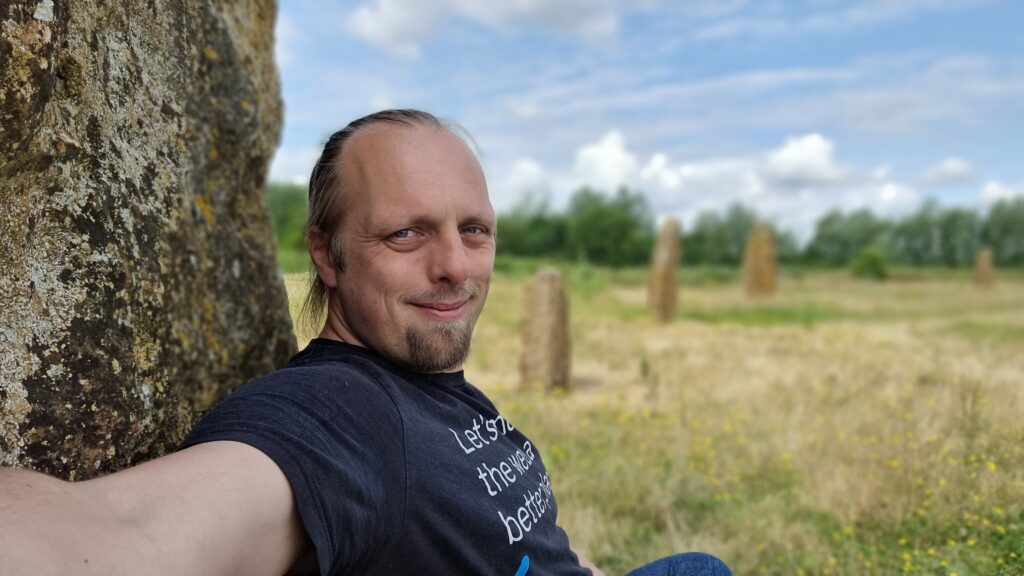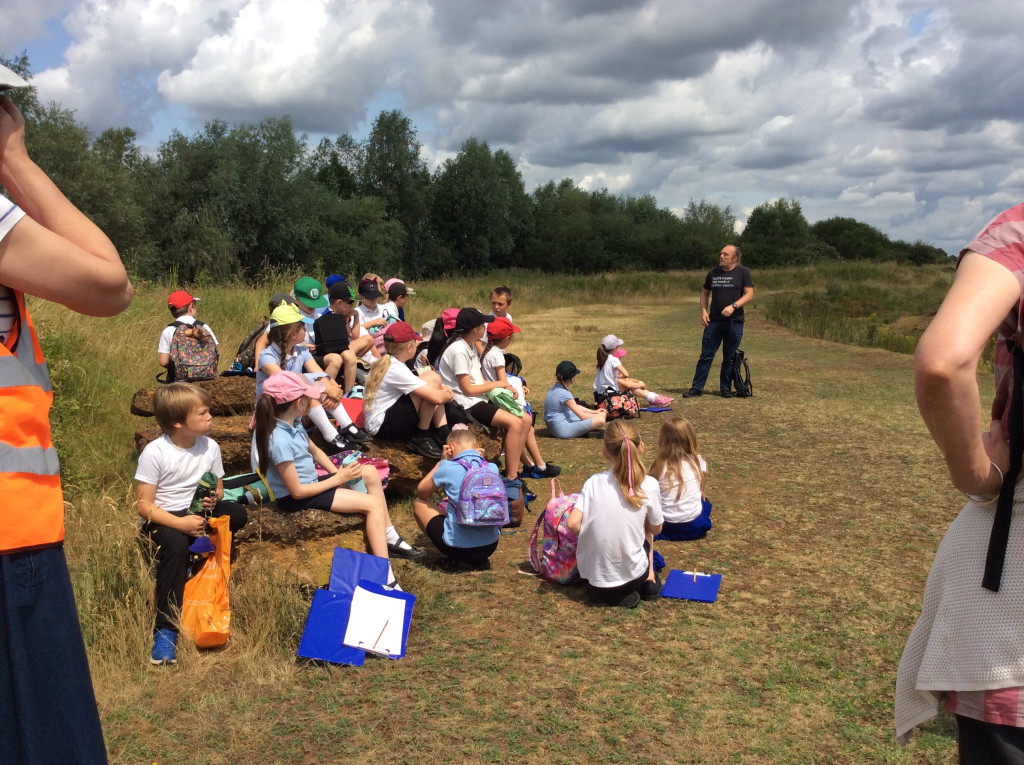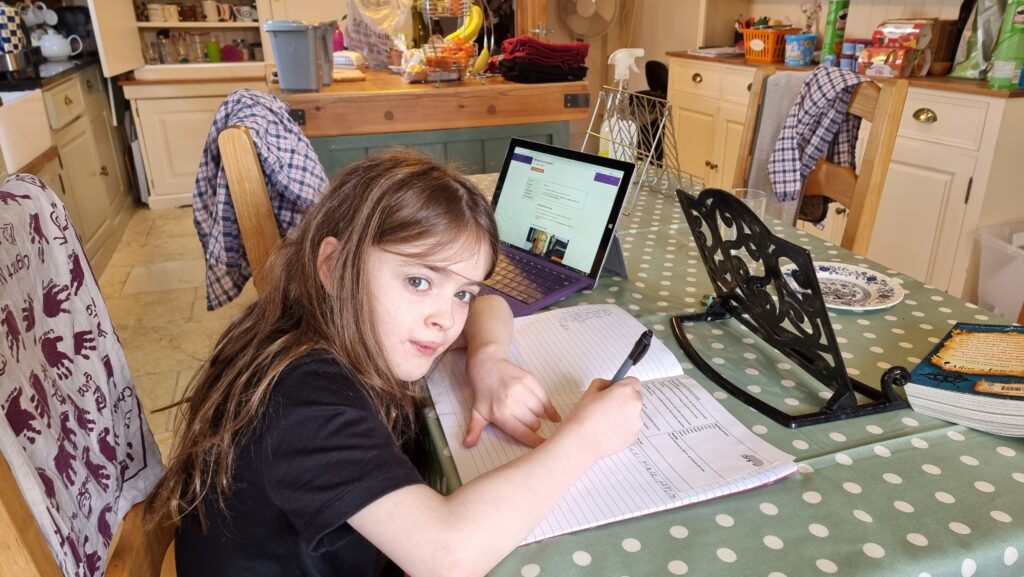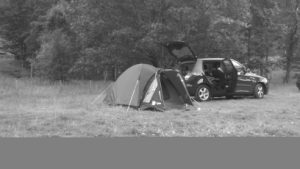At school, our 9-year-old is currently studying the hsitory of human civilization from the late stone age through to the bronze age. The other week, the class was split into three groups, each of which was tasked with researching a different piece of megalithic architecture:
- One group researched Stonehenge, because it’s a pretty obvious iconic choice
- Another group researched the nearby Rollright Stones, which we’ve made a family tradition of visiting on New Year’s Day and have dragged other people along to sometimes
- The final group took the least-famous monument, our very own local village henge The Devil’s Quoits

And so it was that one of our eldest’s classmates was searching on the Web for information about The Devil’s Quoits when they found… my vlog on the subject! One of them recognised me and said, “Hey, isn’t that your Uncle Dan?”1
On the school run later in the day, the teacher grabbed me and asked if I’d be willing to join their school trip to the henge, seeing as I was a “local expert”. Naturally, I said yes, went along, and told a bunch of kids what I knew!

I was slightly intimidated because the class teacher, Miss Hutchins, is really good! Coupled with the fact that I don’t feel like a “local expert”2, this became a kick-off topic for my most-recent coaching session (I’ve mentioned how awesome my coach is before).

I eventually talked to the class mostly about the human geography aspects of the site’s story. The area around the Devil’s Quoits has changed so much over the millenia, and it’s a fascinating storied history in which it’s been:
- A prehistoric henge and a circle of 28 to 36 stones (plus at least one wooden building, at some point).
- Medieval farms, from which most of the stones were taken (or broken up) and repurposed.
- A brief (and, it turns out, incomplete) archeological survey on the remains of the henge and the handful of stones still-present.
- A second world war airfield (a history I’ve also commemorated with a geocache).
- Quarrying operations leaving a series of hollowed-out gravel pits.
- More-thorough archeological excavation, backed by an understanding of the cropmarks visible from aircraft that indicate that many prehistoric people lived around this area.
- Landfill use, filling in the former gravel pits (except for one, which is now a large lake).
- Reconstruction of the site to a henge and stone circle again.3

It turns out that to be a good enough to pass as a “local expert”, you merely have to know enough. Enough to be able to uplift and inspire others, and the humility to know when to say “I don’t know”.4
That’s a lesson I should take to heart. I (too) often step back from the opportunity to help others learn something new because I don’t feel like I’m that experienced at whatever the subject is myself. But even if you’re still learning something, you can share what you’ve learned so far and help those behind you to follow the same path. I’m forever learning new things, and I should try to be more-open to sharing “as I learn”. And to admit where I’ve still got a long way to go.
Footnotes
1 Of course, I only made the vlog because I was doing a videography course at the time and needed subject matter, and I’d recently been reading a lot about the Quoits because I was planning on “hiding” a virtual geocache at the site, and then I got carried away. Self-nerdsniped again!
2 What is a local expert? I don’t know, but what I feel like is just a guy who read a couple of books because he got distracted while hiding a geocache!
3 I’ve no idea what future archeologists will make of this place when they finda reconstructed stone circle and then, when they dig nearby, an enormous quantity of non-biodegradable waste. What was this strange stone circle for, they’ll ask themselves? Was it a shrine to their potato-based gods, to whom they left crisp packets as a sacrifice?
4 When we’re talking about people from the neolithic, saying “I don’t know” is pretty easy, because what we don’t know is quite a lot, it turns out!
